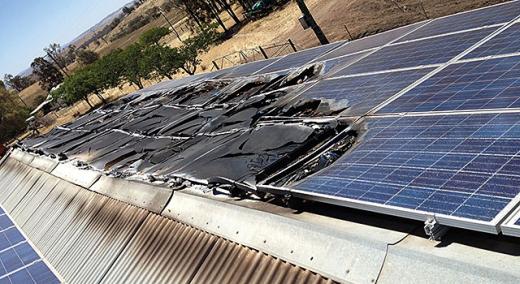Unlike diamonds, solar panels are not forever. Ultraviolet rays, gusts of wind, and heavy rain wear away at them over their lifetime.
|
ADVERTISEMENT |
Manufacturers typically guarantee that panels will endure the elements for at least 25 years before experiencing significant drop-offs in power generation, but recent reports highlight a trend of panels failing decades before expected. For some models, there has been a spike in the number of cracked backsheets—layers of plastic that electrically insulate and physically shield the backsides of solar panels.
The premature cracking has largely been attributed to the widespread use of certain plastics, such as polyamide, but the reason for their rapid degradation has been unclear. By closely examining cracked polyamide-based backsheets, researchers at the National Institute of Standards and Technology (NIST) and colleagues have uncovered how interactions between these plastics, environmental factors, and solar panel architecture may be speeding up the degradation process. These findings could aid researchers in the development of improved durability tests and longer-lived solar panels.
…

Add new comment